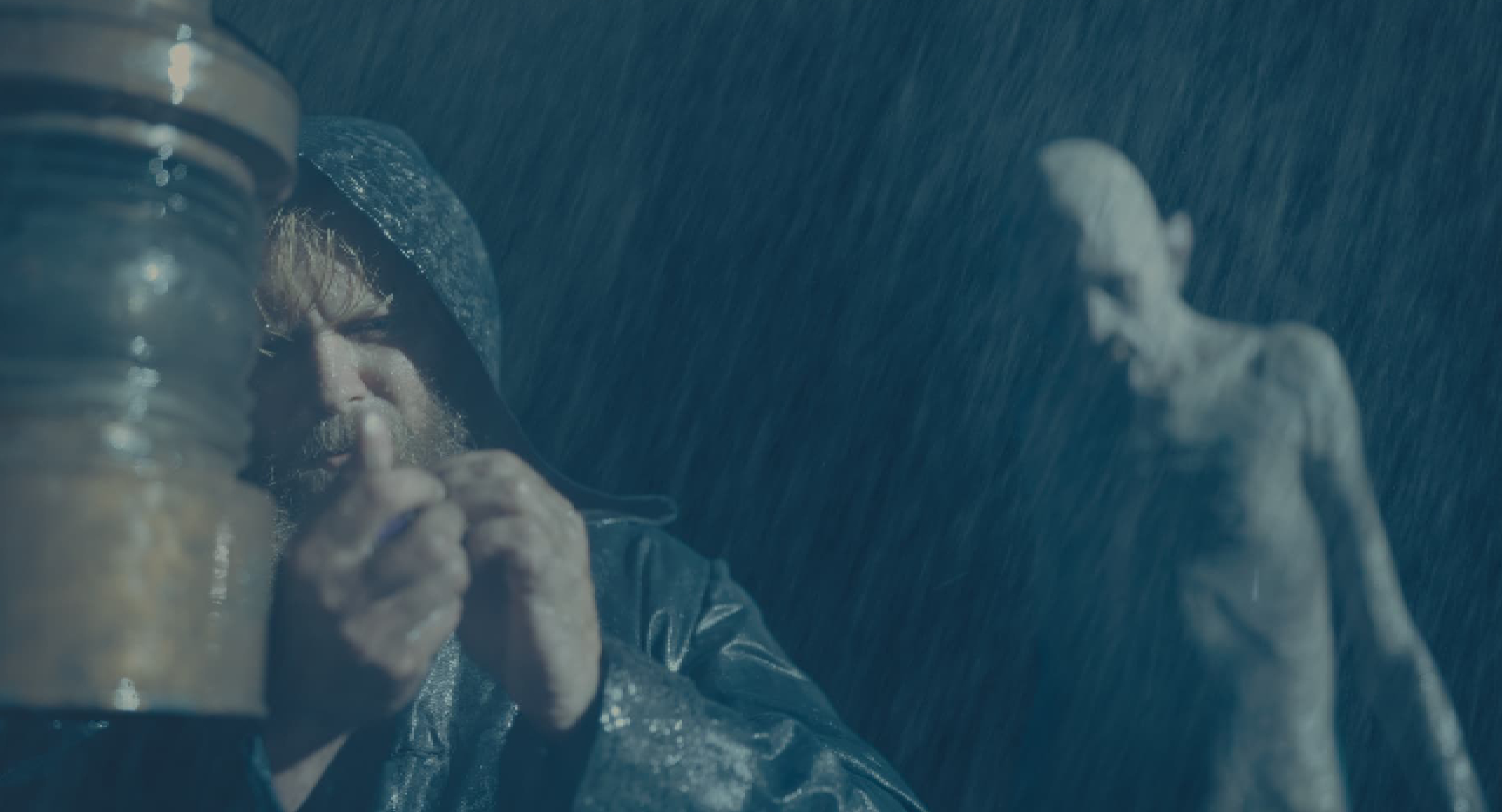The Last Voyage of the Demeter – Film Review
Published August 12, 2023

The crew of the merchant ship Demeter sets sail from Carpathia to London to deliver a cargo of 50 unmarked wooden crates. However, they soon discover they’re not alone as Dracula’s unholy presence turns the trip into a nightmarish fight for survival.
In an era where horror films often rely on jump scares and gory visuals, The Last Voyage of the Demeter, directed by André Øvredal and written by Bragi Schut Jr. and Zak Olkewicz, is a breath of fresh air for horror aficionados seeking a more intellectually stimulating and atmospheric experience. Based on “The Captain’s Log,” a chapter from Bram Stoker’s timeless novel Dracula, the film takes a deep dive into the psychological horror and tension that builds when a ship becomes a vessel for the supernatural.
From the very first frame, The Last Voyage of the Demeter draws audiences into its world of maritime mystery. The intricate set design meticulously captures the essence of a 19th-century sailing vessel, evoking a sense of historical authenticity that immerses viewers in the time period. The claustrophobic corridors and dimly lit cabins of The Demeter serve as a perfect backdrop for the impending horror, as the ship’s confined spaces become a breeding ground for fear and paranoia.
The hauntingly beautiful cinematography paints a foreboding picture of the sea, alternating between serene landscapes and ominous fog-shrouded waters. Øvredal’s skillful direction ensures that every frame is brimming with tension, leaving the audience with an unsettling feeling of anticipation as the ship sails toward its ominous destiny.
One of the film’s strengths lies in its character development, which goes beyond the usual horror film stereotypes. Corey Hawkins delivers a captivating performance as Clemens, the compassionate doctor who joins the ship’s crew. His transition from skepticism to acceptance of the supernatural is portrayed with nuance, as he grapples with both his rational medical knowledge and the inexplicable horrors unfolding before him.
Aisling Franciosi‘s portrayal of Anna adds a layer of empathy to the film. Her character’s tragic backstory and reluctant connection to Dracula inject a sense of sympathy into the unfolding terror. Liam Cunningham‘s Captain Elliot exudes authority and vulnerability in equal measure, making his fate all the more heart-wrenching. David Dastmalchian‘s portrayal of Wojchek is a study in paranoia and deteriorating sanity, reflecting the crew’s collective descent into madness.
The Last Voyage of the Demeter masterfully uses the slow-burning horror approach to build tension and suspense. The deliberate pacing allows the audience to become invested in the characters’ fates, while the gradual escalation of eerie incidents keeps them on the edge of their seats. The film takes its time to reveal the true nature of the threat, allowing the audience’s imagination to run wild before the terrifying reality is unveiled.
One of the film’s most intriguing aspects is its reimagining of the iconic Dracula character. Javier Botet‘s portrayal of Dracula is both menacing and terrifying, perfectly capturing the allure and danger that define the vampire lord. The film cleverly weaves in elements of the supernatural while emphasizing the terror of the unknown. Dracula’s presence is felt even before he fully appears, thanks to the crew’s reactions and the chilling mystery that surrounds him.
At its core, The Last Voyage of the Demeter explores themes of transformation and sacrifice. Anna’s plight as a woman bound to Dracula against her will raises questions about agency and the loss of identity. Clemens’ ethical struggle with his medical interventions raises ethical dilemmas about the lengths one should go to in order to save a life. The film delves into the consequences of these choices, and the final acts of both Anna and Clemens showcase the profound impact of their decisions.
Beneath its riveting narrative, The Last Voyage of the Demeter pays homage to classic horror while infusing it with modern sensibilities. The film’s focus on psychological terror and character-driven storytelling harkens back to the horror films of yesteryears, reminding audiences of the genre’s roots in suspense and atmosphere. It’s a refreshing departure from the usual spectacle-driven horror movies that often prioritize shock value over substance.
In The Last Voyage of the Demeter, Øvredal, Schut, and Olkewicz have created a horror gem that delights in its attention to detail, character depth, and thematic complexity. This modern retelling of a classic chapter from Dracula offers a chilling exploration of fear, transformation, and sacrifice, while honoring the essence of horror storytelling. With its rich atmosphere, stellar performances, and well-crafted suspense, the film stands as a testament to the enduring power of horror to captivate and unsettle its audience. Whether you’re a die-hard fan of classic horror literature or a casual moviegoer seeking a spine-tingling experience, The Last Voyage of the Demeter is a must-watch that will leave you craving more of its cerebral and unsettling brand of horror.
